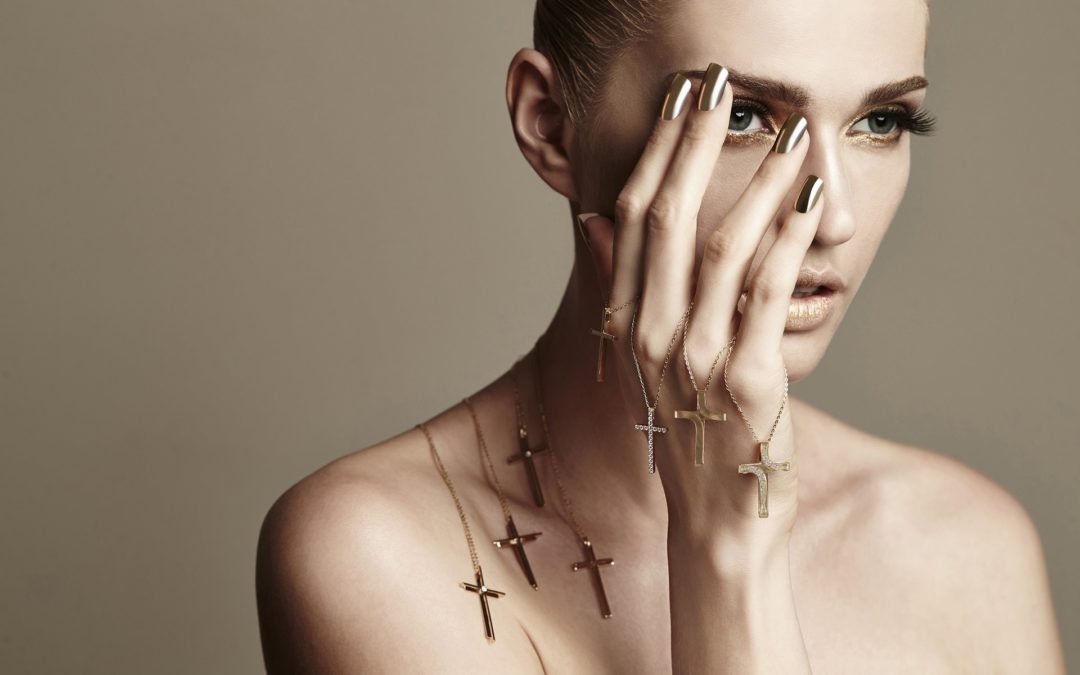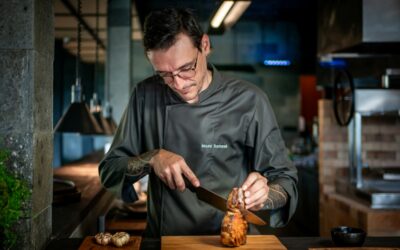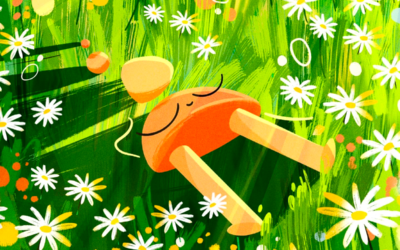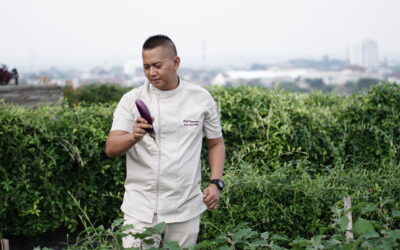André C. Meyerhans, the founder and designer of Mario Uboldi jewelry art, is an award winning architect. His magnificent creations blur traditional boundaries between art, architecture and design.
Mario Uboldi Jewelry Art is an articulation, part of a larger language in contemporary design with cultural inflection that is applicable to different trades and to different scales. The designer’s approach focuses on analyzing phenomena in art, culture, nature, architecture and distills them to their core parameters to get at their underlying principles. By combining diverse attributes, such as historic and contemporary characteristics, a new visual dialogue emerges which is rooted in it’s references. Mario Uboldi Jewelry Art not only blurs the boundaries between art and jewelry but also between cutting-edge production methodology and sophisticated goldsmith tradition which has been passed on for generations. In this interview, we spoke to the talented and acclaimed designer about current and future trends, important facets of the jewelry industry and his several achievements throughout his illustrious career so far!
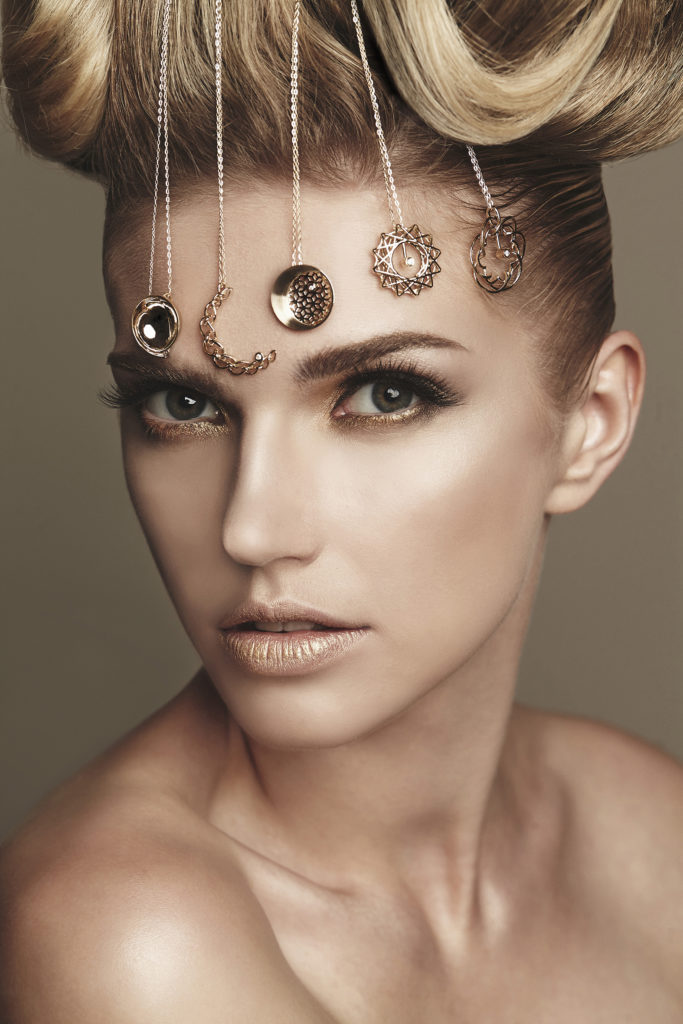
charms in the sky
What made you decide to pursue a career in jewelry designing?
There are certain things one does not decide in life but life decides for you. This is one of these moments. I was always interested in design and art and pursued architecture as my career. That I started to design jewelry is a coincident – agreeably a very nice one – but completely unintended.
What do you consider the most important facets of the jewelry industry?
The intangible mystery of dreams and emotions created by tangible preciousness.
There is sophistication of craftsmanship and quality of gemstones, preciousness of materials and ultimately the physical value of jewelry that serves as an objective measurement of importance in the jewelry industry. And rightly so. However, the art of jewelry starts where it leaves behind comparison and solely focuses on itself and where rationality gives way to emotions. The pieces that evoke sentiments ultimately outshine everything else.
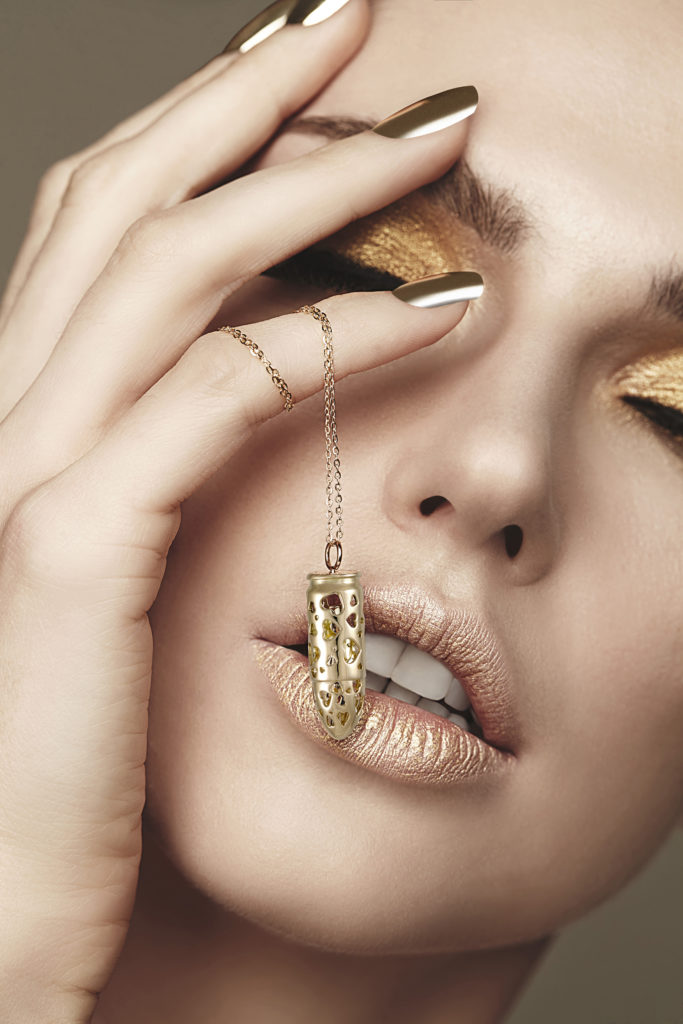
Uboldhi Charms-Bullet of Love
What do you think are the current and future trends in jewelry globally?
Talking about fine jewelry, we see three trends in the global jewelry industry:
- Jewelry as investment – there will be a shift from perceived value to hard value. Customers will focus on material values and see this as an investment, something tangible that can be enjoyed every day. This will happen mainly in regards of the purity of the metal as well as in the quality of the stones – in particular diamonds.
- Jewelry as emotional adornment – People long for meaningful and emotional designs that touch beyond its ostentatious appearance; the intrinsic spirit warms the soul and comforts the mind.
- Social responsible jewelry – this trend started a while ago. While the focus has shifted away lately due to more pressing matters, social responsibility and fair trading throughout the entire process of creating jewelry will become important again.
- Online platforms – fine jewelry has been lagging behind in regards to all other trades when it comes to online sales. Considering most people got more accustomed to online purchases in the last few weeks and months and social distancing is glooming in the back of the head, more accessible fine jewelry will see an increase in non-brick-and-mortar activities than before.
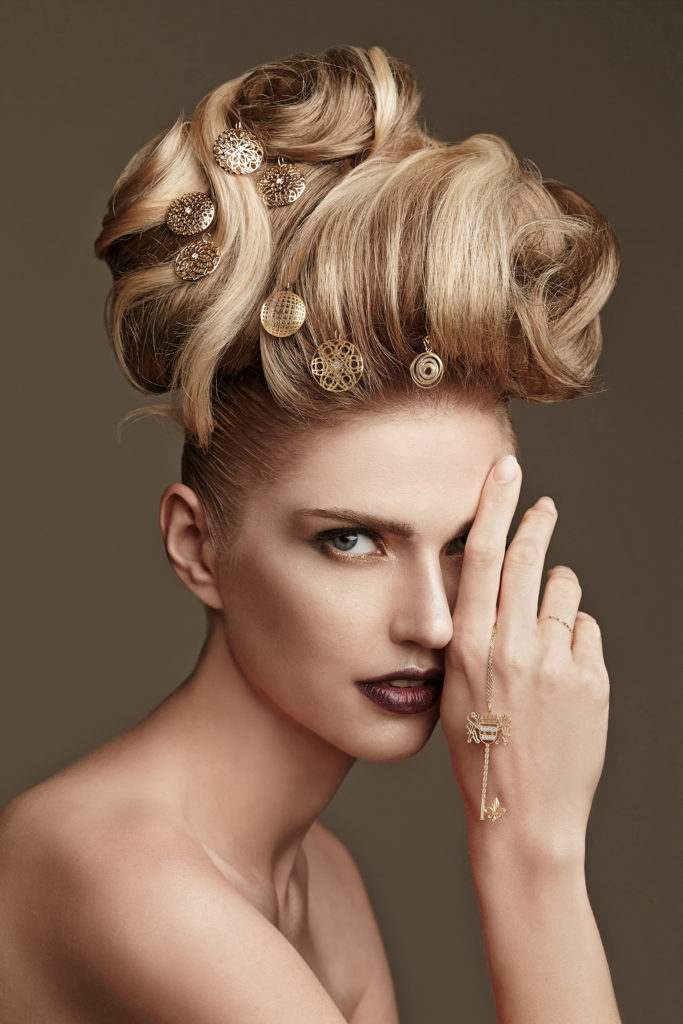
Uboldi Charms-wheel of fortune
How do you think your education has prepared you to work in this industry?
My academic study focused on architecture; harmonies of shapes, surface qualities and color combinations belong to an architect’s repertoire to create functional and inspiring buildings. Till date, my design approach shows this rational-explorative mannerism that is rooted in the engineering mindset of an architect. Most of my technical knowhow about jewelry making, I have learned in the workshop: settings, connections, locks and surface treatment. Also the melting, molding, soldering and polishing … I have learned from the work bench and not from the text book. Much later I went back to school to study gemology. Gemology involves rough and polished diamonds, colored stones and pearls. This study consolidated and broadened at the same time my knowledge of vital elements of the jewelry. Each of above engagements prepared me in a different way for what the jewelry world brings. A proper education paves the way into the industry and supports quick progress for sure. However, I would emphasize that continuous and persistent work is equally if not more important for success.
How would you describe your personal style?
Architectural beauty or engineered art – My architectural background influences the jewelry design in the way that the designs are often sculptural and developed in three dimensions. The gold is used as an expressive material to create cathedral-like shapes: structural elements added to artistic compositions of higher complexity that awe the eye and mind. And precious stones are seen as an integral part of the design that can be molded and formed as colorful embellishment rather than serving as a solitaire phenomenon.
What was the first piece of jewelry you ever designed?
That was back in 2000 when I designed the first piece of jewelry for my mother who had back then a difficult time in her life. We got her a piece of jewelry, and there were matching but unset stones which we also took and for which I designed the setting to complete the set. So, the first piece of jewelry was a token of love for my mother. She loved it, and it made her happy – and her happiness made me happy too. This original story lives on in the brand name: Mario Uboldi Jewellery Art. It is the name of my maternal grandfather – my mother wished to be out of the spotlight. The logo is the coat of arm of the Uboldi family, a noble clan from Northern Italy.
When did you realize you wanted to become a jewelry designer?
As indicated, my initial jewelry pieces were very personal. This changed when a royal family member from the GCC organized a solo art exhibition with works of mine. While the exhibition focused mainly on artworks, it was important to link it to related fields – like architecture, furniture design and jewelry. For that specific exhibition, I designed and created five collections that reflected on the same topic as the artworks shown. This event was maybe not the starting point in regards of designing jewelry but for sure the key to creating the label Mario Uboldi Jewellery Art.
How long does it usually take you to construct a piece of jewelry?
That depends much on the complexity of the piece and the material one works with. Pieces of the Mario Uboldi Jewellery Art collection usually take about one year. Much time is being given to the design process and research of it. Often an idea migrated from architecture where extensive reflection on a topic occurred for something differently. Designs grow like a plant – they need time. They also need scrutiny and reflection. Once a design reached the stage of prototyping, technical aspects and wearability come into focus along with market related issues. For our Uboldi Charms collections, the time from initial idea to finished product is significantly shorter – not necessarily because of the complexity of the design but because of the technical aspects and market related topics.
What are some of your accomplishments as a jewelry designer?
Mario Uboldi Jewellery Art has been exhibited in the Rietberg Museum in Zurich, a reputed art museum in Switzerland and an institution linked to the University of Art and Design in Zurich and at the luxury department store Liberty in London. We had collaborated with Rolls Royce and showcased in various art galleries in Europe, Middle East and Asia. We are proud and honored that a few royal family members of the Middle East own Mario Uboldi Jewellery Art.
Who are some of your favorite fashion designers?
I am usually most intrigued by young, up and coming fashion designers – and artists for that matter – as their ideas are fresh, exploring and usually joyful. They can capture the Zeitgeist well. The intensity and freshness often outbalance the technical refinement and the chance that its creator – not the creation – might not succeed long term. On the other hand, I also appreciate old masters as it seems the wisdom of a life-time is consolidated in a single piece. Very interesting! The last aspect which I like in designers is if they challenge my perception and open my mind. Such work is often fascinating but not really pleasing at the same time. It is an uncomfortable attraction that suggests that I need to change or evolve my thinking or point of view. I really like that.

Uboldi Charms-Orient RGB
Where can readers buy your jewelry?
Mario Uboldi Jewellery Art, is available directly with us and best is to contact us via email: [email protected] . Uboldi Charms is available in various stores in the GCC. Store locations can be found on our website (about – store locator). There are discussions about listings outside the Middle East – and we are working on opening our online store under uboldicharms.com later this year – most likely third quarter. So, should you be interested in the charms, please feel free also to contact us under above email.
How long have you worked as a jewelry designer?
My first piece of jewelry, I designed in 2000. Fifteen years earlier, I entered the field of architecture. I still do both and it is interesting to engage in these trades in parallel. They influence each other and inspire each other across different uses, scales and materials.
What advice do you have for aspiring jewelry designers?
Believe in yourself and pursue your passion continuously and steadily … and don’t give up!
Do you consider yourself an artist?
Interesting question, I never thought of myself as an artist. When I attended London Business School for an MBA, a colleague of mine told me after graduation, you are an artist. Interestingly, to me, it did not feel like a complement, even though, he meant it as one. I now understand where he came from and do agree with him that I have a creativity driven mindset like an artist. Do I consider myself an artist – no, but an architect and designer.


